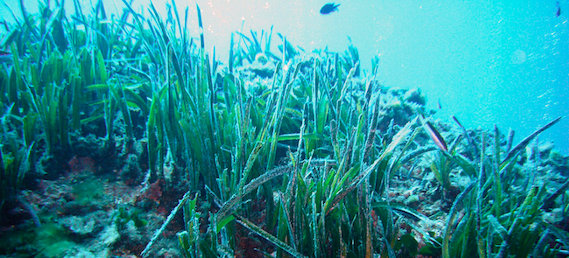Abstract
Although climate warming is affecting most marine ecosystems, the Mediterranean is showing earlier impacts. Foundation seagrasses are already experiencing a well‐documented regression in the Mediterranean which could be aggravated by climate change. Here, we forecast distributions of two seagrasses and contrast predicted loss with discrete regions identified on the basis of extant genetic diversity. Under the worst‐case scenario, Posidonia oceanica might lose 75% of suitable habitat by 2050, and is at risk of functional extinction by 2100, whereas Cymodocea nodosa would lose only 46.5% in that scenario as losses are compensated with gained and stable areas in the Atlantic. Besides, we predict that erosion of present genetic diversity and vicariant processes can happen, as all Mediterranean genetic regions could decrease considerably in extension in future warming scenarios. The functional extinction of Posidonia oceanica would have important ecological impacts and may also lead to the release of the massive carbon stocks these ecosystems stored over millennia.
Chefaoui, R. M., Duarte, C. M. and Serrão, E. A. (2018), Dramatic loss of seagrass habitat under projected climate change in the Mediterranean Sea. Glob Change Biol. Accepted Author Manuscript. . doi:10.1111/gcb.14401

